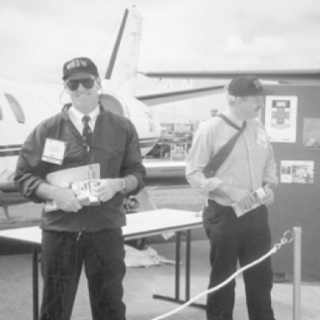Aviation Program Review and Refresh

The UNSW School of Aviation (UNSW Aviation) started in 1995 with only 11 students. We are now one of the leading research and teaching-intensive schools of aviation, known for innovative, pioneering research and high-quality education with a global impact. Our management graduates are in senior roles in key organisations across the globe and our pilot graduates are highly sought after within the aviation industry and are employed by major airlines around the world.
The impact of COVID on the global industry, emerging aviation and technologies as well as the development of aviation infrastructure around the world, including Western Sydney Airport, has created demand for graduates with relevant skills and knowledge to manage the industry into the future.
In response to the changing needs of the industry, UNSW Aviation identified an opportunity to conduct a comprehensive review and refresh of its programs, to further strengthen its offerings so as to enhance its position as a global leader in aviation education.
Over the past year, UNSW Aviation has conducted a holistic review of its programs. This has included extensive consultation with academic and professional staff, students, alumni, industry stakeholders and advisory bodies. Comprehensive benchmarking and research of the current aviation industry, future outlooks and projected trends also fed into the process. As a result, proposals for major changes to existing management and flying programs, as well as the introduction of a new program in remotely piloted aircraft systems was proposed and submitted to a range of academic approval committees.
Briefly, the changes include:
- A full refresh of the program learning outcomes (PLOs) and course offerings for the respective Bachelor of Aviation in Flying and Bachelor of Aviation in Management programs.
- The introduction of a new Bachelor of Aviation in Remotely Piloted Aircraft Systems program. In a world first, this program will include a flight training component of 40 hours of aeroplane flying to a Recreational Pilot Licence level and 40 hours of remote pilot flying, which comprises 20 hours of flight training and 20 hours of commercial experience, as well as a strong core of management and operational courses, to create graduates capable of leading this dynamically evolving sector.
- The introduction of three minor specialisations (optional for students) – Human Factors and Aviation Safety, Aviation Law and Sustainability, and Aviation Data Analytics in the Bachelor of Aviation in Management program.
- The introduction of a suite of 12 new courses to be integrated across the revised Bachelor of Aviation in Flying, Bachelor of Aviation in Remotely Piloted Aircraft Systems and Bachelor of Aviation in Management, and complement the holistic approach being taken to learning and teaching in the new UNSW Aviation 2024 education format.
We are pleased to announce that all proposals have been approved for commencement in 2024. These changes will be reflected in the UNSW Handbook over the coming months.
